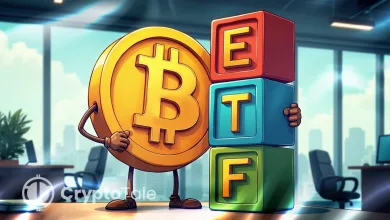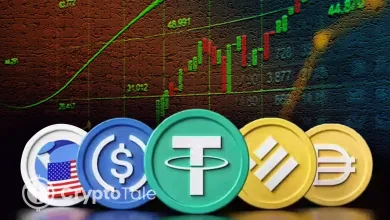Telegram Founder Accuses France of Election Interference

- Durov claims French intelligence pressured him to censor Moldovan channels before elections.
- France rejects the censorship allegations, accusing Durov of timing claims during elections.
- The clash highlights tensions between state power, platform sovereignty, and digital freedoms.
Telegram founder Pavel Durov has ignited a political storm with accusations against French intelligence. On Sunday, he alleged that officials used his ongoing legal troubles to push him into censoring Moldovan opposition voices before a critical parliamentary election. The French government swiftly rejected the claims, calling them politically timed and unfounded.
The showdown highlights an escalating struggle between platform sovereignty and state power. At stake are questions about how governments interact with encrypted apps and how much influence they can exert during volatile elections.
Durov’s Allegations in Paris
Durov claimed French intelligence used an intermediary to pressure him while he remained under judicial supervision in Paris. According to his account, the agency asked him to block several Telegram channels linked to Moldova’s opposition.
He said he agreed to remove a few channels that violated Telegram’s rules. However, he refused broader requests to silence voices he believed were politically targeted but compliant. Durov said the intermediary promised favorable words to his judge in exchange for cooperation, which he called unacceptable.
“If the agency did in fact approach the judge, it interfered in the judicial process,” Durov wrote in his statement. He added that if no such approach occurred, then officials exploited his case to influence politics in Eastern Europe.
Moldova voted Sunday in a parliamentary election with high stakes for its European Union membership bid. President Maia Sandu’s pro-EU Party of Action and Solidarity held a clear lead with more than half the ballots counted. Pro-Russian leader Igor Dodon called for protests and signaled plans to challenge the results.
France Rejects Interference Claims
The French Ministry for Europe and Foreign Affairs dismissed the allegations within hours. Officials posted on X, noting that Durov had made similar claims during Romania’s election season earlier this year.
“After Romania, Moldova. @durov likes making accusations while elections are ongoing,” the ministry wrote in English. French intelligence agency DGSE had already denied his earlier claims about pressure to silence Romanian conservative voices.
Durov has faced mounting legal pressure since his arrest at a French airport in 2024. He remains under judicial supervision and must report to authorities every two weeks. He denies wrongdoing and has labeled the charges against him as “legally and logically absurd.”
Observers say the dispute underscores how legal exposure can become leverage for governments. States may use judicial vulnerabilities to extract concessions from tech leaders in politically sensitive situations.
Related: France, Italy Push for ESMA Control, Malta Opposes Changes
Broader Battle Over Digital Sovereignty
Legal experts note that Durov’s account illustrates the risks for global platforms caught between government demands and user rights. Alex Chandra, a partner at IGNOS Law Alliance, said companies must separate clear rule violations from politically sensitive but compliant content.
“Rule-based governance is non-negotiable,” Chandra explained. “Platforms that clearly separate standards from political preferences can preserve credibility with regulators, investors, and users.”
He warned that governments often reuse successful tactics across industries. “Legal exposure is becoming leverage,” Chandra said. “Once effective in one sector, a regulatory playbook can quickly spread into others.”
The debate resonates far beyond Telegram. Privacy-focused tools in crypto face similar pressures, as shown by recent legal actions against Tornado Cash and Samourai Wallet developers. Mohith Agadi, founder of Fact Protocol, said the Telegram case highlights “a broader tension between state interests and digital freedoms.”
He called for stronger transparency and oversight to manage conflicts when governments intervene in politically charged environments. “The challenge arises when these priorities collide, particularly during elections,” Agadi said.
Telegram has long stood as a symbol of digital independence. Durov left Russia in 2014 after refusing to shut down opposition groups on his previous platform VKontakte. That history fuels his current refusal to comply with political censorship requests.




